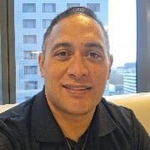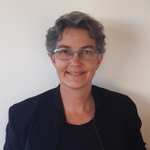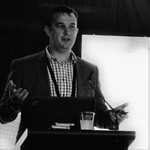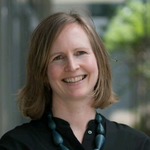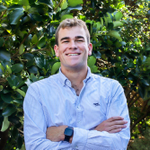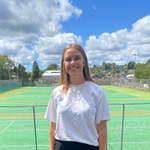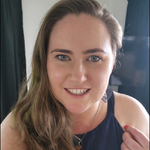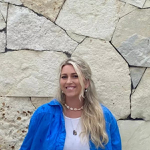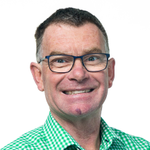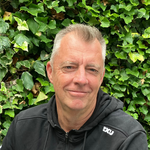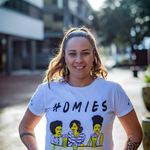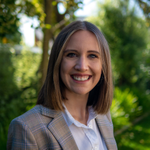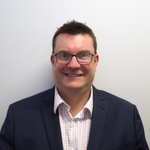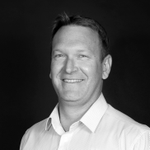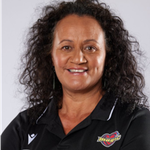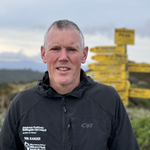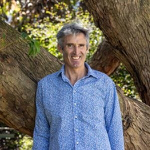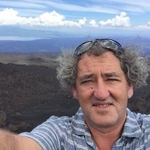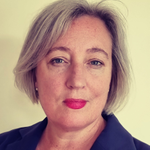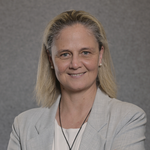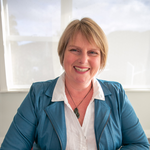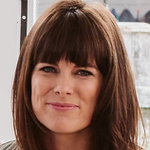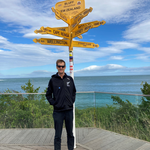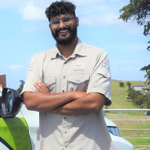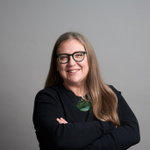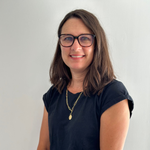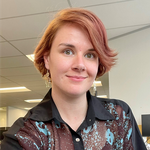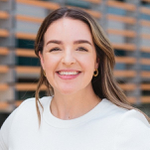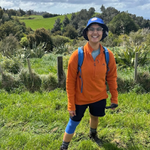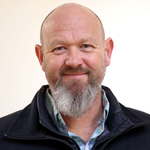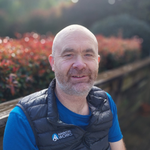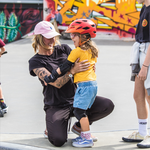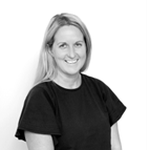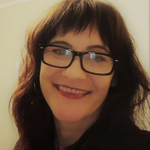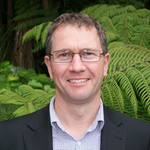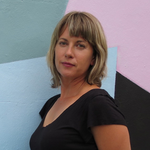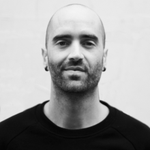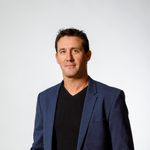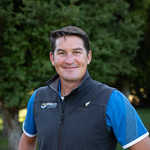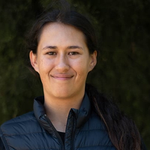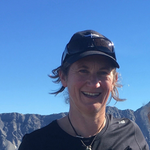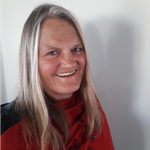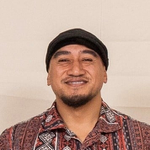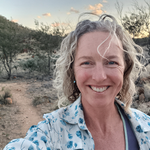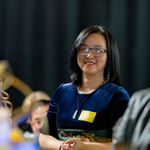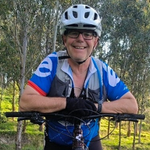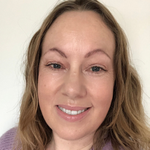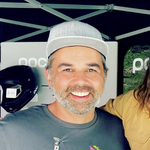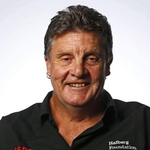- Registration
Sir Noel Robinson Foyer
- Powhiri
Plenary
- Conference open and housekeeping
Plenary
- Story of the Rohe • Martin Cooper
Plenary
- Keynote • Tūpuna Maunga Authority and Te Waka Tairanga Whenua
Joe Hammon•Elizabeth ParkinAuckland Council’s unit, Te Waka Tairanga Whenua, is a nimble team tasked with looking after a breadth of co-governance and co-management arrangements across Tāmaki Makaurau. These partnership arrangements bring Ngā Mana Whenua o Tāmaki Makaurau iwi collective and Auckland Council together to care for some of the most sacred sites of Auckland.
The co-governance and co-management arrangements supported by Te Waka Tairanga Whenua bring an approach to management that rests upon varying Te Tiriti o Waitangi settlements and local government management structures. From legislated arrangements to local board management sub-committees, these structures provide valuable connectivity between Mana Whenua, local government, and the community.
Some of the sites concern single iwi while others work with multiple iwi across multiple sites. Each entity manages sites of high cultural significance to Mana Whenua; all with public access. All sites deliver mutually beneficial social, environmental, cultural, and resource management outcomes.
Paul Majurey, Chair of the Tūpuna Maunga Authority and Joe Hammon, Kaiwhakahaere Te Waka Tairanga Whenua share their perspectives on the challenges and successes of working in the co-governance space. - Paramanawa / Morning Tea
- Kaipātiki • Treaty partnership in action
Jane Sherard•Waimārie Povey-NichollsThe presentation will focus on the Kaipātiki Recreation reserve, nestled away in Parakai, Kaipara, Tāmaki Makaurau. The reserve is 18 hectares and currently managed by the reserve board Te Poari o Kaipātiki ki Kaipara. The reserve is owned 50/50 equal shares by Ngāti Whātua o Kaipara and Auckland Council, together they jointly govern and manage the whenua and all activities. The korero will focus on the concepts of mahi ngātahi - treaty partnership in action and the transformational outcomes that can be achieved when working harmoniously together for your community.
Kaipātiki recreation reserve provides access to the geothermal waters of Te Awa Kahawai, where communities experience and respect the natural functions of Papatūānuku (the earth mother) and Rūaumoko (the god of volcanic activity). Kaipātiki is habitat for diverse species and provides access to the river Te Awa Kahawai and fulfills its name Kaipātiki "the place of abundant flounder and food".
The whenua is a place for whānau to congregate, wananga, recreate and play together. Access on and throughout the reserve is warm, welcoming and serves as a strong reminder of Ngāti Whātua o Kaipara and local area values of tauutuutu (reciprocity).
Kaipātiki is a hive of recreational activity, providing local hospitality and products amongst a natural backdrop, reminiscent of its previous state. The mauri (life force) of Te Awa Kahawai is healthy and Kaipātiki remains a taonga tuku iho (treasure to be passed on) for future generations.
"He mauri nuku, he mauri rangi, tuia ki Kaipātiki, ka puta, ka ora" - Mid-term politics in a downturn economy
Sam Newton, ARProSam will apply a Recreation lens to New Zealand politics and the economy, reflecting on the year past and the year ahead. Legislation, regulation, the budget and much more. What is planned for 2025? What are the challenges and what are the impacts on the recreation sector?
Join us for an overview of what we can expect from the Government over the next year and how Recreation professionals can keep themselves informed and engaged. - Wā Kai / Lunch
- AGM
- Mātamua ko te taiao, mātāmuri ko te tangata • Mātaio
Aimee Topia•Chrissy Hiraani HiltonMātaiao is an innovative initiative launched in Tamaki in 2023 to integrate the Atua Matua framework within kura Māori, to deepen the understanding and application of mātauranga Māori through a focused engagement with te taiao. Mātaiao interweaves three key themes to foster holistic educational experience: environmental observation, physical engagement and storytelling.
The core of Mātaiao is the principle of observing and interacting with natural phenomena. It is crucial for accessing and understanding mātauranga Māori. The observational approach serves as both a pedagogical method and a pathway to deeper environmental connection, emphasising the significance of te taiao as a living classroom where learning is both seen and experienced.
Kei te takanga te pito mata highlights the journey of learning through kori. This aspect of Mātaiao facilitates access to mātauranga by engaging kaiako in physical activities that are significant to identity such as navigating wai and whenua pathways. These experiences are not focused on the physical aspects but rather cultural learnings, enriched in the overall journey.
The use of pūrākau or storytelling through traditional narratives illustrate how these stories can be utilised to enhance understanding and the retention of mātauranga. Pūrākau connects the learner with ancestral knowledge and ancestral experiences, reinforcing the lesson that originated within that natural environment.
Mātaiao not only provides an educational experience but instils a sense of identity, resilience, and wellbeing that kaiako will be able to reciprocate into their own teaching pedagogies in kura Māori. Mātaiao’s success in integrating these approaches highlights its importance of connection to te taiao and has proven to be pivotal in creating revitalising learning pathways that result in better health and wellbeing outcomes for Māori.- AT
Aimee Topia
Mātaiao ki Tāmaki Supporting Facilitator at Toi Tangata 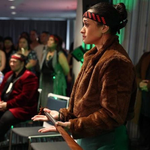
Chrissy Hiraani Hilton
Kaiarahi Mātaiao ki Tāmaki at Toi Tangata
- AT
- Better Connection with Nature • Future visitor network
Catherine WilsonThe Department of Conservation is looking ahead thirty years to visualise what we would like our visitor network to be. While the network hasn’t changed much in the last thirty years, New Zealand now has a larger, more diverse, aging and urban population. Research into visitor needs reveals that what they want from DOC’s visitor network has changed (e.g. currently the most popular recreation activity in nature is short walks of less than three hours).
Research shows that physical, mental, social and spiritual wellbeing is increased through deepening connection to our natural and cultural heritage. A balanced range of diverse visitor experiences across Aotearoa will increase opportunities for more visitors to engage with nature more deeply; manage visitor volume to minimise negative visitor impacts; and ensure DOC’s recreation provision is financially sustainable and considers climate change impacts.
We want DOC’s visitor network to operate on the principles of manaakitanga and a corresponding kaitiakitanga – people are welcome to our land and region and place, and in return there is an expectation of respect and care for the environment.
The Future Visitor Network Programme has been set up to ensure DOC’s recreation offering meets the needs of New Zealanders and international visitors. We are considering the experiences offered by other organisations such as councils and private landowners. A draft Visitor Network Strategy outlines what our priority visitor experiences are, and DOC will engage with Treaty Partners and stakeholders on the strategy next year to get input on the redesign of the network. - PANEL • Succession as viewed from our sector up and comers
Rob Gulley•Brittany White•Natalie McNulty•Courtney ReidJoin our panel of emerging leaders in the sector to explore what succession means to them.
If we are to retain this talent what do they want or need to support their career pathway in recreation? What is their vision projecting forwards for themselves and for the recreation sector? - Paramanawa / Afternoon tea
- Keynote • Lessons learned biking down the spine of North America. Sponsored by FPC
Richard Lindsay, ARProSit back and relax while you are taken on an epic journey.
The Tour Divide is a 4,400km solo, unsupported mountain bike race from Banff, Alberta, Canada to Antelope Wells on the Mexican Border. 220 riders (including 21 kiwis) lined up in June to take on this epic endurance adventure. Richard will share his story of the Tour Divide; the highs, the lows and most importantly the lessons learned along the way. The similarities between an ultra-endurance event like the Tour Divide and our working lives became very obvious to Richard as he pedalled from Canada to Mexico.
This presentation is designed to provide a glimpse into the motivations and processes required to bike all day, every day for 27 days. Hopefully you'll leave this presentation having laughed and maybe even shed a tear; but most likely, feel uplifted and wanting to tackle your own adventure in life, whatever that may be. - Wrap of the day and closing karakia
- Xyst Welcome Drinks
- Registration
Sir Nol Robinson Foyer
- Day 2 open
Plenary
- Keynote • Drivers of change
Dave AdamsAs our world undergoes unprecedented change, the recreation sector faces new challenges and opportunities driven by technological advancements, evolving societal norms, global economic and environmental shifts. This talk will explore the key drivers shaping the future of recreation over the next decade, providing a roadmap for decision-makers to foster resilience and sustainability.
- He Pukenga Pūrakau Ka ora te Tamaiti
Dr Nikki Penetito-HemaraHe Pukenga Pūrākau Ka Ora te Tamaiti is the title of Nikki's recently submitted PhD which centres on the transformative power of pūrākau-based physical activity and its impact on hauora outcomes for tamariki Māori.
It emphasises that a flood of pūrākau results in the health of the child. This presentation will discuss what pūrākau-based physical activity entails, while exploring a variety of programmes and their impact (with a specific focus on 'as Māori' participation). - Paramanawa / morning tea
Papanoho
- Aotearoa Parks and Recreation Facilities State of the Nation
Jenn Benden, ARProThe parks and recreation benchmarking programme Yardstick has started sharing an annual report on the data gathered from the current year on comparable trends and insights across Aotearoa and the world.
Since Yardstick has not reported in this way ever before, this presentation will cover not only the 2024 results from Yardstick parks and recreation facility benchmarks but the trends found within over a decades worth of data from councils all over New Zealand. This presentation will provide the opportunity for Recreation Conference participants to be able to understand the data that has been gathered for so many years by Yardstick, in easy to understand themes and insights. This presentation will NOT focus on the product of Yardstick or how it is used in detail, but rather on the high-level insights and themes that our industry can learn from it's long tenure and large data set.
The goal of this presentation is to challenge and inspire both experienced and 'up and coming' professionals to track their own progress and improve the metrics that our industry is able to report on. This has been made increasingly easier since Yardstick was created through the use of GIS and asset management systems.
It is time for our industry to step up with the data we need to explain our value and progress at the same level of other professions we work alongside. It is the hope of this presentation that the insights provided will be taken back into organisations and used to identify and prioritise activities for their spaces and places. - Shifting the Big Rocks in Spaces and Places
Simon TattersfieldDelivering sport and active recreation facilities in Auckland has become a significant challenge. There is multiple factors at play in this dynamic, but if we continue to do what we are doing we can only expect the same outcome. As the City continues to experience high growth and Council budgets struggle to cope with infrastructure requirements, the success of community-led projects and access to facilities outside the Council network become more hugely significant. In the last 15 months Aktive has focused on an approach to change the spaces and places landscape in Auckland based around four key interrelated interventions:
Developing a Regional Facility Priority Plan to focus investment into priority projects
Reinvigorating a Regional Funders' Forum to facilitate integrated conversations and connections between funders
Successfully advocating for $35 million of additional funding from Auckland Council via the 2024-2034 Long-term Plan; and
Facilitating access to education infrastructure and supporting Auckland Council and the Ministry of Education to explore co-investment partnerships.
We believe that if all of these interventions work in concert the spaces and places landscape in Auckland will see improved project delivery, enhanced access to much needed facilities and more tamariki and rangatahi having opportunities to be active - doing what they choose to do. - Community/MOE facility partnership lessons learned – Green Family Taradale Pool
Brendon Rope, ARProSchool facilities can become a valuable contributor to the network provision of recreation, sport, and play community facilities. The recent reviews of the National Aquatics Facilities Strategy and the National Indoor Active Recreation and Sport Facilities Strategy both emphasis the importance of the school facility network.
Not all school facilities are suitable but those that are can deliver significant social return on investment.
This session presents a case study of a school/community pool that has evolved from a traditional model of ownership/governance/management to one that is fiscally sustainable and delivering valuable services to multiple schools and the local community.
The principles can be applied to other facilities so this session is not only for those with an interest in pools. - Wā Kai / Lunch
- Mahi Tahi • Bringing Iwi of Origin to life
Mere RangihunaIwi of Origin is into it's second year of resurgence. Iwi of Origin is a sporting and physical activity festival that brings together iwi from across Tāmaki. To allow our communities to celebrate whanau in a for Māori, by Māori approach.
Iwi of Origin is the culmination of much more that what a one day event may suggest. The collaboration, process, hui, and whanaungatanga that has and is taking place aims to build and support all of the organisations that tautoko the kaupapa. Recognising that we go further together and are united through kotahitanga. - 25 Years of Mākara Peak
Mark Kent•Kerei ThompsonDeep in the western hills of Wellington, lies Mākara Peak Mountain Bike Park, for decades, gorse, wild goats and a windswept transmission tower were the sole inhabitants of Mākara Peak.
Makara Peak Supporters (MPS) a volunteer group in partnership with WCC have converted the gorse covered hills into an award-winning world-class area. Nowadays, it’s a regular go-to destination for tens of thousands of mountain bikers, runners, walkers and nature lovers, who come to enjoy more than 45km of trails and hundreds of hectares of regenerating native bush.
2024 marks the park’s 25 year anniversary, in the late 1990s the park had very few trails, birdlife was limited, and the vegetation was scrubby and weedy, slowly but surely the number and range of tracks has grown, and the size and diversity of the forest has increased dramatically. The rejuvenated native bush and extensive trapping has helped bird life flourish, with Mākara Peak now home to karariki, titipounamu and even kiwi.
The park’s success is due to a close working relationship between the Mākara Peak Supporters Group and the WCC, it’s mostly been fuelled by the on-going efforts of thousands of volunteers who’ve helped build dozens of tracks, planted more than 60,000 native trees, control pest plant species, maintain a network of almost 700 traps, and raised hundreds of thousands of dollars.
While volunteering is still a big part of keeping things humming along, Council contractors and a full-time park ranger now play a huge role in the on-going maintenance and development of Mākara Peak, it is a conservation and recreation partnership that both the Council and the MPS are really proud of. - Paramanawa / Afternoon Tea
- TechTime • Valuing ecosystem services of urban trees in Aotearoa
Howell Davies, ARProThere are a range of ways to consider the values tree provide to an urban setting; how the cerebral value determined by trained professional is translated, communicated into details on the overall dollar values of an urban forest is an important part of strategic planning.
Auckland Council released its Urban Ngahere (Forest)Strategy in 2019; within the strategy there are three high level Objectives, “Knowing Growing and Protecting’.
The ability to value individual urban trees has long been a part of the landscape architect’s realm with several types of visual evaluation. In addition, a number (3-5) arboricultural/tree care evaluation methods have been developed to assess landscape values of trees; and the systems used to assign a value can be subjective.
The ability to put a value on the ‘environmental or eco-system’ services of individual trees has evolved scientifically through international research over the last 30 years; in the US Forest Services their focus of research has channelled into the development of i-Tree.
The free software system continues its international development and is now set up for a number of countries across the globe. In the last 3 years work has been underway to set up the system for New Zealand, in 2023 NZ became another member of the i-Tree family of countries that are now set up to use the system.
Auckland Council as part of a national collaboration to bring the software package to NZ; following 3 years of work it is now fully functional. It is a free piece of software, and the presentation provides a few key insights into the development of the system, how it is now being applied by Auckland Council to complete a study of the urban ngahere and document the type of eco-system service benefits that can be provided by trees in urban parks. - Keynote • Don't worry about the robots!
Dr Jo CribbRemember thumbing your way through the A to Z on your first time in London, trying to work out which way to hold the book? Or cradling a phone in the crook of your neck (a phone with a cord)? Dial-up modems? Tape cassettes in your walkman? All of these are obsolete technologies. Given none of us are aiming to be obsolete, Jo will discuss the new wave of technology, its impacts on our work and what we can do to survive and thrive in the coming decades of work.
- Day 2 close
- Pre-Dinner Drinks sponsored by Jonas Leisure
North Foyer, Due Drop Event Centre
- Awards Dinner sponsored by CONVIC
BNZ Theatre - Due Drop Event Centre
